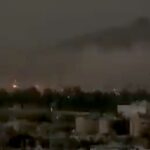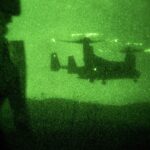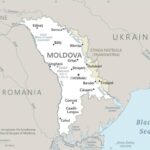Despite the initial announcement to withdraw all U.S. servicemen from Syria, the Trump administration will keep 400 troops in northeastern Syria and al-Tanf as part of a “multinational peacekeeping force.” Since the U.S.-led Coalition against ISIS (Da’esh) is transiting to the next phase of contingency operations, the reduced troop count is adequate to maintain military pressure on the terror group, prevent a large-scale Turkish attack on the Kurdish-led Syrian Democratic Forces (SDF) and restrict Iran’s freedom of operations in Syria. Former U.S. Defense Secretary James Mattis and several military commanders publicly disagreed with Trump’s decision to withdraw from Syria, arguing that a continued U.S. presence is necessary to prevent the resurgence of Da’esh (Consult our assessment on the CONSEQUENCES OF A U.S. TROOP WITHDRAWAL FROM SYRIA here).
While officially branded as a “monitoring and observer force”, the remaining U.S. troops will likely consist of special operations force (SOF) elements tasked with terminal attack control (for air operations), indigenous capacity building, direct action, reconnaissance and counter-insurgency operations. Regular troops will provide force protection. Air assets based in CENTCOM’s area of responsibility will continue to provide close air support and prosecute the remaining Da’esh high-value targets (HVTs) scattered in the Middle Euphrates River Valley. Besides American forces, the multinational peacekeeping force will likely include French and British SOF elements, which have liaised with the Coalition since 2014. Allied contribution to the multinational peacekeeping force could bring the troop count to over 1,000.
Reports suggest that the U.S. administration is also pursuing other NATO allies to contribute to the force. As the Da’esh threat is an inherently transnational issue that concerns the security of all NATO and European Union states, a concerted effort is required. Countries such as Belgium, Denmark and Germany, that still have citizens under Da’esh command, should have a particular interest to commit troops or expand their Iraq deployments to prevent battle-hardened jihadists from returning to their home countries in Europe.
Photo credit: Cpl. Carlos Lopez (Task Force 51/5th Marine Expeditionary Brigade)
- Russia Bombs Maternity Ward & Children’s Hospital in Mariupol As Part of Siege - 10 March 2022
- T-Intell’s OSINT Training Marks One Year Anniversary - 18 November 2021
- IS-K Never Left the Battlefield - 27 August 2021









